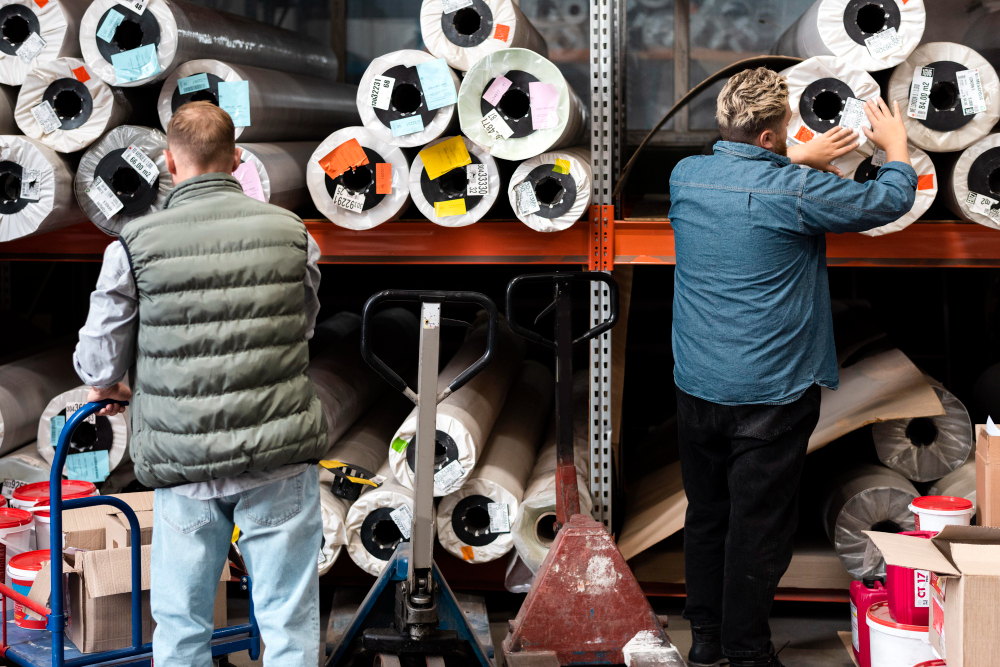What Role Do Paper Pulp Manufacturers Play in the Global Supply Chain?

Paper pulp manufacturers are key players in the global supply chain, providing the essential raw material required for the production of various paper-based products. From packaging materials and printing paper to tissues and specialty papers, the demand for paper is vast and diverse, cutting across industries such as retail, publishing, hygiene, and education. In today’s interconnected world, the paper pulp industry not only serves these immediate sectors but also influences a broader array of global economic activities.
This blog will explore the critical role that paper pulp manufacturers play in the global supply chain, examining their influence on different industries, their contribution to environmental sustainability, and the challenges they face in an evolving economic and ecological landscape.
1. Supplying the Raw Material for a Vast Range of Products
Paper pulp is the primary material used in the production of paper products. It is typically made from wood fibers, recycled paper, or alternative fiber sources such as bamboo, straw, or cotton. The transformation of these fibers into paper pulp is the first step in creating items that are ubiquitous in everyday life.
Paper pulp manufacturers are responsible for supplying high-quality pulp to paper mills and other companies that produce finished paper products. These products include:
- Packaging materials such as cardboard boxes, cartons, and paper bags.
- Printed materials including books, newspapers, magazines, and office paper.
- Tissue products like toilet paper, paper towels, napkins, and facial tissues.
- Specialty papers used in applications like banknotes, security papers, and medical supplies.
Because of the wide range of products that depend on paper pulp, manufacturers are a critical link in the global supply chain, ensuring that raw materials are available to meet the demands of various industries. The reliability, quality, and consistency of pulp production directly affect the availability and quality of these paper-based products.
2. Enabling the Packaging Industry
One of the largest consumers of paper pulp is the packaging industry. With the rise of e-commerce and global trade, the demand for paper-based packaging has soared. Paper pulp manufacturers supply the raw materials needed to produce corrugated cardboard boxes, paperboard, and other types of packaging that are crucial for transporting goods.
The shift towards sustainable packaging solutions has further increased the importance of paper pulp manufacturers in this industry. As consumers and businesses alike move away from plastic packaging in favor of biodegradable and recyclable alternatives, paper-based packaging has become the go-to solution. Paper pulp manufacturers are adapting to these trends by producing eco-friendly, high-strength pulp that can be used to create durable yet sustainable packaging options.
The role of paper pulp manufacturers in the packaging supply chain is thus fundamental, as they provide the essential material for industries looking to reduce their environmental impact while still meeting their packaging needs.
3. Supporting the Hygiene Industry
The hygiene industry, which produces items like toilet paper, tissues, diapers, and sanitary products, also heavily relies on paper pulp. Manufacturers of hygiene products require high-quality pulp that is soft, absorbent, and durable. The global hygiene market has seen exponential growth, particularly in developing regions where rising standards of living are driving demand for these products.
During the COVID-19 pandemic, the importance of hygiene products skyrocketed, placing even more pressure on the global supply chain. Paper pulp manufacturers played a critical role in ensuring that these essential items remained available, despite disruptions to the supply chain. Their ability to ramp up production and meet the increased demand for hygiene products helped stabilize the market and ensured that households and healthcare providers had access to vital supplies.
4. Promoting Environmental Sustainability
One of the most significant roles that paper pulp manufacturers play in the global supply chain is their contribution to environmental sustainability. As industries and consumers alike become more conscious of their ecological footprint, the paper pulp industry has taken significant strides in adopting sustainable practices.
Many paper pulp manufacturers have transitioned to using sustainably sourced wood from certified forests, where trees are replanted after they are harvested. This practice ensures that the demand for pulp does not lead to deforestation and helps maintain the balance of forest ecosystems. Additionally, manufacturers have increased the use of recycled paper pulp, which reduces the need for virgin wood and minimizes waste.
Some manufacturers have also embraced alternative fiber sources such as agricultural residues (like straw or sugarcane bagasse), which further reduces the reliance on wood. By innovating in the production of paper pulp, manufacturers are helping to promote a circular economy, where materials are reused, recycled, and repurposed rather than disposed of after a single use.
5. Addressing Global Economic Challenges
While paper pulp manufacturers play an integral role in supporting industries worldwide, they also face a range of challenges that can impact the global supply chain. These challenges include:
Fluctuations in raw material availability: Factors such as deforestation, changes in land use, and natural disasters can affect the availability of wood and other fiber sources, which can, in turn, disrupt the supply of paper pulp.
Rising production costs: Energy, labor, and transportation costs continue to rise, putting pressure on manufacturers to optimize their production processes and find ways to cut costs without compromising quality.
Environmental regulations: As governments introduce stricter regulations to reduce carbon emissions and protect forests, paper pulp manufacturers must adapt their operations to comply with these laws. This often requires investments in new technologies and sustainable practices, which can be costly.
Market volatility: The demand for paper products is influenced by global economic trends, consumer behavior, and technological advancements. For example, the digitalization of media has reduced the demand for traditional printed materials, while the growth of e-commerce has driven up demand for packaging materials. Manufacturers must be agile and able to adapt to these market shifts.
Despite these challenges, paper pulp manufacturers remain a vital part of the global supply chain. Their ability to innovate and adopt sustainable practices will be critical to the future success of the paper industry and its continued relevance in an increasingly eco-conscious world.
6. Collaborating with Global Partners
The interconnected nature of today’s supply chains means that paper pulp manufacturers often work closely with partners across the globe. These partners include:
Forest owners and logging companies: Sustainable sourcing of wood fiber relies on strong partnerships with those who manage forest lands. Paper pulp manufacturers collaborate with certified forest managers to ensure a consistent and responsible supply of raw materials.
Recycling companies: The use of recycled paper pulp has grown in importance, and manufacturers often partner with recycling companies to source high-quality recycled fibers. This collaboration not only supports sustainability goals but also reduces the pressure on virgin wood resources.
Paper mills and converters: Once the pulp is produced, it is sold to paper mills and converters, where it is transformed into finished products. Manufacturers work closely with these downstream partners to ensure that the pulp meets the necessary quality standards for each specific application.
Conclusion
Paper pulp manufacturers play a central role in the global supply chain, providing the essential raw materials that power a wide range of industries, from packaging and hygiene to printing and specialty papers. They are key contributors to sustainability efforts, helping businesses reduce their reliance on non-renewable materials and promote a circular economy.
Through their ongoing innovation and adoption of sustainable practices, paper pulp manufacturers ensure that the products we rely on every day are produced efficiently, responsibly, and with minimal environmental impact. As global demand for sustainable materials continues to rise, their role in the global supply chain will become even more crucial.
Note: IndiBlogHub features both user-submitted and editorial content. We do not verify third-party contributions. Read our Disclaimer and Privacy Policyfor details.




